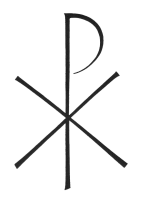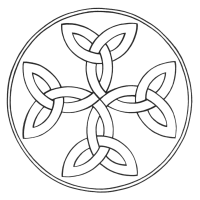 |
"The Christian Village" Prof.
Felix Just, S.J. |
 |
Discussion Group Questions
-
The
following are the assigned questions for your weekly discussion groups;
you may, of course, also discuss any other topics that are pertinent to our class. -
The
questions are listed for the Wednesdays on which they are given at the end
of class,
for use by your discussion group's meeting sometime before class the following Monday. -
Write
a brief summary (not over 1 page, but 2/3 page is too short!)
of what your group discussed;
take turns writing your group's summary, following the format described in more detail below.
| Date | Questions/Topics for Your Discussion: |
| Wed - 1/25 | 0) Introduce yourselves to one another briefly,
including mention of your religious backgrounds (In which religion were you raised, if any? Do you still practice it? How active are you?) 1) What is the essence of Christianity? That is, what do all Christians (Orthodox, Catholic, Protestant) hold in common? Think of beliefs, practices, ethics, prayers, etc. |
| Wed - 2/1 | 1) What are the ten most important events
in Jesus' life? (bullet-list these in decreasing order of importance). 2) What are the ten most important teachings of Jesus? (bullet-list these in decreasing order of importance). |
| Wed - 2/8 | 1) What is the impact (pos. & neg.) of the Bible
(esp. the teachings of Jesus) on the world today? 2) What is the impact (pos. & neg.) of Christianity (esp. the Catholic Church) on the world today? |
| Wed - 2/15 | What are some of the main differences between
early Christianity (the first 300 years, before Constantine, as you learned from the NT, Gilles ch. 1, and Rausch ch. 2) and Christianity today? Consider beliefs, practices, structures, etc. |
| Wed - 2/22 | Discuss which liturgies at which churches you want
to attend (together or individually) for the semester project. Note: No need to write a group summary this week, since everyone will turn in your own "Project Proposal" on Mon, 2/27. Study together the Roman Catholic "Order of Mass" and look for online resources for the other churches you plan to attend. |
| Wed - 3/1 |
Prepare for a Debate: Grace vs. Free Will:
Which is the more important factor in human life: God's Grace or Free Will? |
| Wed - 3/8 | No need to meet over Spring Break, unless you are attending some liturgies together. Have a good Spring Break! |
| Wed - 3/22 | 1) Have you observed any baptisms? Share with each other what you saw: for family & friends, in public church ceremonies, maybe on TV or in movies. Discuss the wide variety of ways HOW people are baptized in different Christian denominations. 2) Discuss the pros & cons of infant baptism, and the pros & cons of not baptizing children but waiting until they are adults. |
| Wed - 3/29 | Discuss some examples of "modern saints" (other than those mentioned in Rausch, p. 102): people from the past 100 years who were role models of authentic Christian discipleship, even if they have not yet been officially "canonized" by the Church. Find at least one example from each of the following four categories: 1) a priest or bishop, 2) a religious sister or brother, 3) a married person or couple, 4) a single person (and try to think of a non-Catholic Christian for at least one of these). In your report, describe how or why each of these four people were outstanding models of Christian discipleship. |
| Wed - 4/5 | Discuss your experiences visiting liturgical services at three different churches. Make sure you connect the issues of liturgy and theology, according to the lex orandi, lex credendi principle. No need to submit a group report Monday, when your papers are due. |
| Wed - 4/12 | Holy Week: No discussion group meetings. Finish revising your semester papers, and catch up on any readings you've missed! |
| Wed - 4/19 | (See Gilles 16 & 17): The U.S.A. prides itself for having "freedom of religion," "separation of Church and State," and "religious diversity"; yet we also have a long history of anti-Catholicism, anti-Semitism, and discrimination against other religious groups. What about now? Discuss some examples both of religious freedom/toleration & of anti-religious discrimination/violence in the U.S.A. today. |
| Wed - 4/26 | Semester Summary, Part I: Begin compiling lists of the main differences between the five largest/oldest branches of Christianity: |
| Wed - 5/2 | Semester Summary, Parts II & III: (click for summary document) |
| Wed - 5/9 | MEET & STUDY TOGETHER for the Final Exam - you'll be glad you did! (but no need to write a group report, obviously) |
Guidelines for writing the weekly summaries:
- All papers must be typed, double-spaced, using 12-point font, with one-inch margins all around.
- Do not go over one page; if you need to write more, then reduce the font size to 11 or 10 point size and/or reduce to 1-1/2 line spacing.
- On the top line, write your group number, the author's name (first, in bold), and the full names of all other group members who attended.
- On the second line, indicate when and where your group met (date, time, location), and if anyone was absent.
- On the rest of the page, summarize what your group discussed as clearly and compactly, yet completely as possible
See also Course Syllabus | Class Schedule | Research Project | Study Guide: Quizzes | Study Guide: Gilles | Study Guides: Rausch
Return to the Homepage
of Prof. Felix Just, S.J.